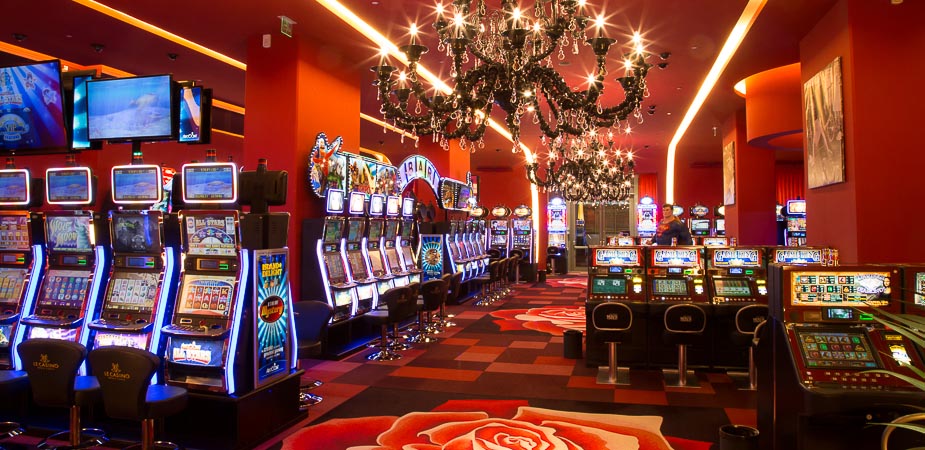
Casino games have long captivated players from all parts of society, enticing them into vibrant casinos filled with the sounds of spinning wheels, clattering chips, and cheering crowds. The thrill of chance and the allure of potential winnings create an exhilarating atmosphere that keeps gamblers coming for more. Whether it is the excitement of a slot machine, the thoughtful play of poker, or the anticipation of a roulette wheel, casino games offer a distinct combination of fun and risk that can be hard to ignore.
At the heart of this fascination lies a psychological pull that varies from person to person. For a few, the excitement of hitting a jackpot can elevate their mood, while for others, it’s a social experience that brings friends together. The colorful visuals, engaging sounds, and sometimes lavish environments of casinos further enhance the appeal, making each visit an experience waiting to unfold. As we delve into why gamblers are drawn to these games, we uncover the underlying motivations and emotions that fuel their passion for the betting tables.
Understanding Gambling Psychology
The appeal of casino games commonly stems from the complex psychology of gambling as a whole. Many players are drawn to the thrill of risking money for the opportunity of winning more, as it speaks to a profound human desire for thrill and reward. This high can create a powerful emotional experience. The mix of risk and potential monetary gain can trigger a dopamine release, making players feel alive.
Furthermore, the design of casino games is engineered to keep players engaged. The use of vibrant lights, enthralling sounds, and the communal environment of casinos can amplify the excitement. Players typically find themselves immersed in these environments, where the anticipation of a win keeps them coming back for more. This sensory engagement encourages extended play, as the instant feedback from wins, however small, reinforces the desire to keep playing.
Finally, cognitive biases play a major role in gambling behavior. Many gamblers fall prey to the illusion of control, believing they can influence outcomes even in games of chance. This belief can lead to overconfidence and the propensity to keep playing, despite accumulating losses. Additionally, gamblers typically recall their wins more clearly than their losses, which can distort their perception and intensify the desire to gamble more. This complex interplay between emotions and cognitive factors helps clarify why so many are attracted to casino games.
The Allure of Gambling Settings
The environment of a casino is uniquely captivating, pulling in bettors with its mix of excitement and suspense. The sights and sounds of whirling slots, excited participants, and the steady jingling of chips create an immersive experience that is hard to pass up. The vibrant lights and energetic design foster a sense of vitality that keeps visitors engaged and encourages them to stay for longer periods. This captivating atmosphere contributes to the overall appeal of casino games, enticing both inexperienced and experienced bettors alike.
Furthermore, casinos are designed to arouse the sensory experience in a fashion that makes players feel as though they are setting out on a exciting adventure. The purposeful placement of games, comfortable chairs, and complimentary drinks enhance the overall experience, making players feel cherished and treated well. Many casinos also feature artistic decorations and intricate motifs that take visitors to different dimensions, amplifying the thrill. Such atmospheres foster a sense of freedom, allowing gamblers to ignore their everyday existences and dive into the thrilling world of chance.
Ultimately, the existence of additional players amplifies the communal aspect of betting, creating a collective excitement. Connections among participants, be it through light-hearted chitchat or collective happiness during a huge win, cultivate a sense of bonding that many find tempting. This interpersonal interaction enhances the experience of participating in gaming activities, transforming it from a individual endeavor into a joint journey. The combination of anticipation, captivating settings, and communal ties makes gambling establishments an irresistible place for gamblers seeking recreation and a possibility to gain.
Comprehending Game Mechanics
Casino games are engineered with specific mechanics that attract players. Each game has its specific set of rules, betting structures, and probability ratios, allowing players to engage with the game on various levels. The thrill of submitting a bet and the anticipation of the outcome creates an exciting atmosphere. Understanding these mechanics can deepen a player’s appreciation for the game and enhance their overall experience.
Another crucial aspect of game mechanics is the idea of randomness. Many casino games, especially poker machines and table games, rely on randomizers or shuffling to determine outcomes. bakar69 This randomness is what keeps players returning; the unpredictable nature of the game creates a notion of hope and excitement. Knowing that each spin or turn is independent of the last contributes to the appeal, as players perceive they have a chance at winning, regardless of past outcomes.
In conclusion, the emotional response connected with game mechanics should not be underestimated. The excitement of a large victory or the tension during critical moments are fundamental to the enjoyment of casino games. Such emotional highs and lows exploit psychological triggers that keep players engaged for extended periods. Understanding these emotional responses to game mechanics can help explain why individuals are drawn to the thrill of casino games, persistently seeking that upcoming exhilarating moment.